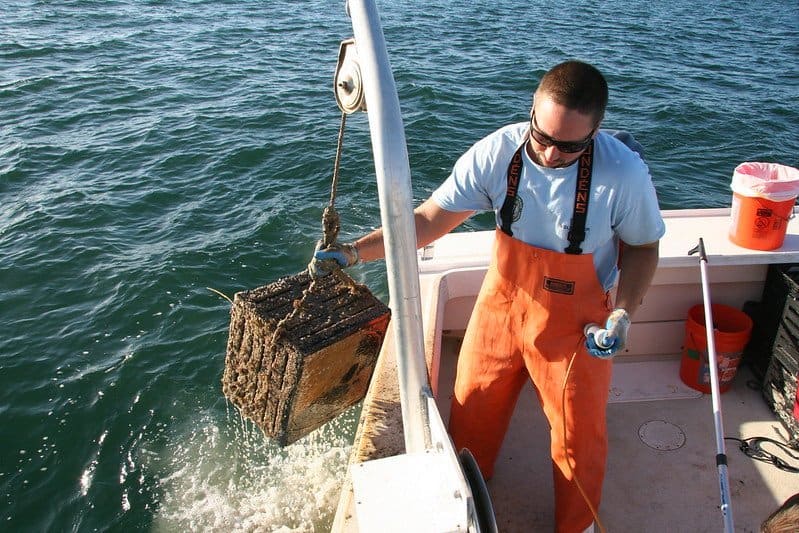Welcome back to The Fixer, our weekly briefing of solutions reported elsewhere. This week: a supermarket in Germany teaches people about life with a disability. Plus, New Jersey crabbers clean up the ocean floor, and China moves to shut down its plastic pipeline.
Empathy in aisle five
A mock supermarket in the German city of Aachen is teaching nursing students about the everyday hurdles faced by people with disabilities. As part of a four-hour training seminar called SENSE, the students wear goggles that simulate visual-orientation problems like those experienced by people who have had a stroke. Then they try to shop, but finding the items on their lists — jam, bread, milk — proves more difficult than anticipated with their limited optical abilities. Later, they trade their goggles for vests that poke their backs when they try to bend over. Now, able to see the jam, they can’t stoop down to grab it. “I was thinking, this could happen to me someday,” one of the students confesses.
SENSE was created by Patrick Dohmen, whose stepson has cerebral palsy. His non-profit organization, the European Competence Center for Accessibility (EUKOBA), teaches health care professionals and others what it feels like to have a disability. The goal is to foster empathy, but also to spur design changes in public places like supermarkets. This is a particularly pressing issue in Germany, where one in five residents are over 65 and 10 percent of all Germans have a disability.
Since 2016, SENSE has trained 3,200 students. They come from a range of professions that interact with the public, from health to travel to entertainment. “It is one thing to hear about something and another to see and feel it by yourself,” says one.
Feeling trapped?
There’s a spooky problem haunting the ocean floor: ghost gear — lost or abandoned fishing equipment that traps sea life, snags boat propellers and drains fishermen’s wallets. Crab traps are a particular issue. They get caught in the muck, and once discarded, continue to collect crabs, which die and become bait for yet more sea life — a morbid cycle of marine death. An estimated 640,000 tons of ghost gear litters the oceans each year, killing non-target species like turtles and costing fishermen millions in losses.

Now, a team of New Jersey crabbers is using funding from the U.S. National Oceanic and Atmospheric Administration to tackle the problem. Using sonar to survey the seabed, they create maps of areas where ghost gear seems to be lurking. They then give these maps to local crabbers, along with low-cost sonar devices that allow them to pinpoint lost gear. The fishermen, who are out there fishing anyway, use the sonar to find the ghost gear and haul it up.
What started as a trial run with four crabbing boats has since expanded to 11, with the original four fishermen training the rest. So far, they’ve pulled up over 2,200 traps, many of which they can reuse. Best of all, with the sonar equipment now on their boats, they can recover their own traps as quickly as they lose them, preventing the problem before it starts.
To-Go Plastic to Go
We can’t slap a “Success!” sticker on this one quite yet, but we’re encouraged this week by China’s announcement that it will ban plastic bags from shopping centers and supermarkets in major cities by the end of this year. The ban will go nationwide by 2022, as will a law against plastic utensils in food delivery and plastic packaging in e-commerce deliveries by companies like Alibaba.
While it remains to be seen whether China will strictly enforce the regulations — they’ve had trouble in the past — the country is leading the way on a number of environmental issues, as RTBC recently reported. And even partial success would make a significant dent in the world’s single-use plastic glut. As it stands, Alibaba ships up to a billion packages each day. Taking those out of the plastic pipeline alone should have a significant effect.







